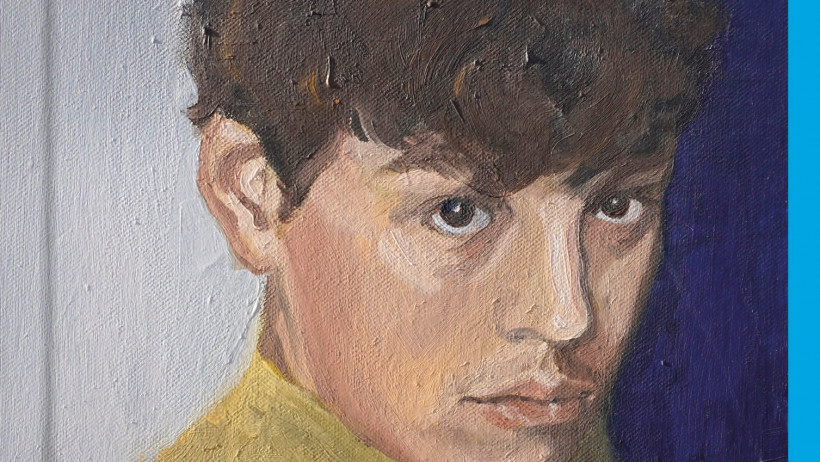Through a close look at the social mechanisms that drive young people into the clutches of far-right movements, the novel not only provides a compelling story but also offers important analysis of contemporary issues.
Content and central themes
The novel revolves around Ettore, a 17-year-old boy from a suburb of Milan. Ettore grows up in a loveless home where communication and emotional warmth are lacking. His mother has high expectations for his education, but Ettore feels lost and isolated in his new school. In this moment of uncertainty and confusion, he finds new friends who introduce him to the Federazione, a fascist youth organization. Here he comes into contact for the first time with Italy's recent past and its political theories.
Extremism and the search for belonging
Ettore is a teenager searching for belonging and meaning. The union offers him a community and clear structures that are missing from his chaotic life. Kubo vividly describes how Ettore is drawn into the group’s ideology. His development is detailed, from his first encounters to his active participation in demonstrations and violent clashes. This portrayal terrifyingly shows how quickly and deeply young people can slide into extremist circles when they are searching for identity and recognition.
Narrative style and literary quality
The novel is told from Ettore's first-person perspective, giving the reader direct access to his thoughts and feelings. Kubo's writing style is deliberately distant and abbreviated, reinforcing the protagonist's inner emptiness and insecurities. Some critics find this stylistic choice appropriate and authentic, while others see it as an impediment to the enjoyment of reading. Nevertheless, the novel has been praised for its realistic portrayal of the dynamics of extremism and its social significance.
Historical and social context
“Tomorrow is Ours” takes place in a time of political and social upheaval. The early 2000s in Italy were a period of reorientation in which old ideological conflicts were revived. The failure to come to terms with the fascist past and the ubiquitous bureaucracy contribute to the confusion of young people. Cobo shows how historical ignorance and social isolation can lead to the repetition of past mistakes (Büchereule.de).
Character development and emotional depth
Ettore is a complex character whose development is intensely described throughout the novel. At first he is an insecure boy looking for recognition. But the deeper he becomes immersed in fascist ideology, the more his character changes. Kubo manages to portray his inner conflict and growing extremism with believability. Ettore goes from a naive young man to an active participant in extremist activities. This transformation is both frightening and fascinating (Thalia).
The influence of family and friends
A central element of the novel is the relationship between Ettore and his family and friends. His parents are emotionally distant and offer him no support. The only person he trusts is his grandmother Elsa. But even from her he hides his activities in the Federazione. His new friends there provide him with a kind of substitute family, but they indoctrinate him with dangerous ideologies. These relationships illustrate the complex social networks that can contribute to radicalization (Buchraum) (Büchereule.de).
Social significance and current references
Tomorrow Is Ours is not just a personal story, it is also an astute analysis of the social conditions that foster extremism. In an Italy reluctant to come to terms with its fascist past, Cobo shows how historical ignorance and social isolation can lead to the repetition of past mistakes. The novel raises questions about responsibility, community, and the dangers of extremism, and invites the reader to think critically about these themes (Thalia).
The magic and horror of extremism
One particularly powerful aspect of the novel is its detailed portrayal of Ituri's gradual radicalization. Kubo shows how impressionable youth can be drawn into extremist ideologies by charismatic leaders with simple answers to complex problems.
The Federazione not only offers Ettore a community, but also a clear solution to his deep-rooted insecurities and his search for meaning. The gradual escalation from harmless meetings to violent confrontations is realistically and frighteningly depicted (Büchereule.de).
Symbolism and metaphors
Kubo uses many symbols and metaphors in his novel to depict the internal struggle and external influences on Ituri. The Union itself is a symbol of the seductive power of extremist ideologies, while Ituri's grandmother Elsa represents the last link to a stable and loving world. These symbols help to illustrate the deeper meaning of the story and the universal themes of identity, belonging, and moral confusion (Book Space).
Post-Fascism in Italian Literature
David Cobo's novel, Tomorrow is Ours, is a profound and important novel that addresses current social issues and encourages reflection. Ettore's story is a powerful representation of the dangers of radicalization and the need to provide a stable and supportive environment for young people.
Although the style may not appeal to every reader, the depth of the narrative and its social significance are undeniable. Tomorrow is a must-read not only for fans of Italian literature, but also for anyone interested in the dynamics of radicalization and dealing with historical trauma.

“Explorer. Communicator. Music geek. Web buff. Social media nerd. Food fanatic.”







More Stories
A fossilized creature may explain a puzzling drawing on a rock wall.
MrBeast Sued Over ‘Unsafe Environment’ on Upcoming Amazon Reality Show | US TV
Watch comets Lemmon and SWAN approach Earth today